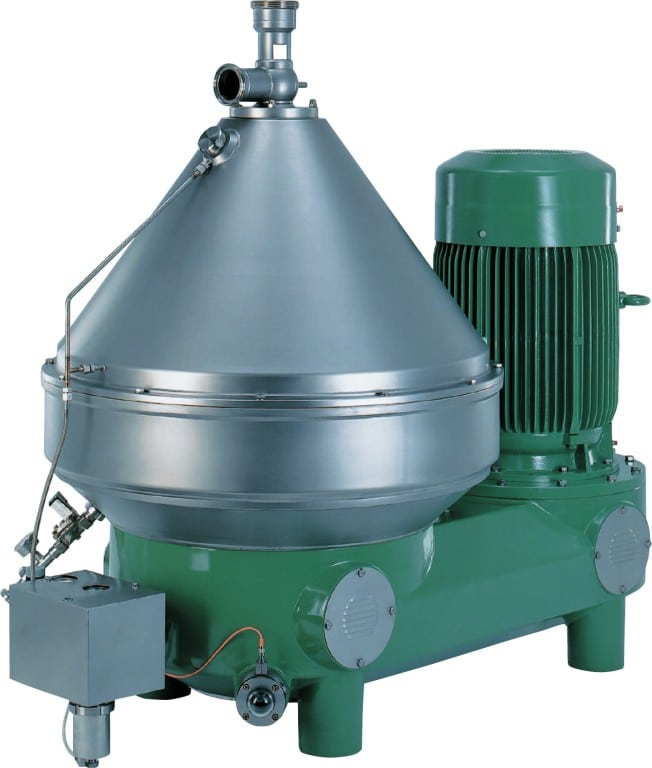In the Chinese province Shandong, a coal-fired power plant will be putting into operation the first industrial-scale plant worldwide for CO2 storage by algae. Within the framework of this project, GEA Westfalia Separator Group (Oelde, Germany; www.westfalia-separator.com) has been awarded a contract to the amount of around €1 million for three high-performance separators (photo below) for harvesting and washing the algae.
Algae are the most important CO2 consumers on our planet; 1 kg of dry algae biomass is capable of storing approximately 2 kg of CO2 and releases simultaneously 1.6 kg of O2. In this case, the algae are cultivated by feeding purified fluegas from the coal-fired power plant into the algae suspension. The algae convert the CO2 contained in it into proteins, lipids and carbohydrates with the aid of sunlight. The separators from GEA Westfalia Separator Group handle the core process of harvesting the algae biomass, concentrating it by the factor 50 and washing it with fresh water in a second stage. The algae are finally dried and used as high-grade proteins, for example, as an animal feed additive.
Storage of approximately 2,500 kg/d of CO2 is possible with the three separators. This special separator design of the GEA Westfalia Separator Group is already used in other algae purification processes and is already well established in algae biotechnology.
This process makes it possible on the one hand to reduce air pollution and to store CO2 to slow down global warming. Second, there is a positive cost effect. The process pays off within a few years since revenue is generated both through trading with CO2 certificates as well as selling animal feed.
